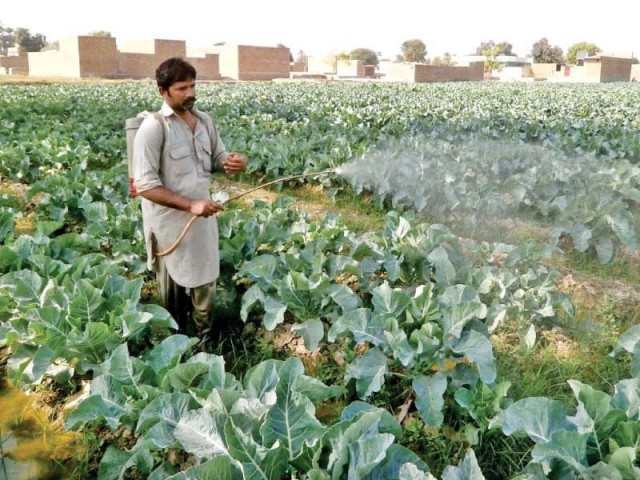Horticulture sector: Looking for cushion as competition becomes stiff
Seeks tariff relief, seed and fertiliser subsidy and funds for value addition

The Nairobi package contains six ministerial decisions on agriculture, cotton and issues related to least-developed countries including a commitment to abolishing subsidies on farm exports. PHOTO: APP
Horticulturists of the country are facing challenges in competing with rivals in the international market as the government has not been able to develop an effective national agriculture and food security policy to provide a cushion to the sector in a sustainable manner.
The Ministry of National Food Security and Research failed to come up with the agricultural policy despite claims in this regard by the former secretary of the ministry, who retired recently after remaining at the helm of affairs for more than two years.
Autumn colours: Flower show blooms in capital
Talking to The Express Tribune, FPCCI Standing Committee on Horticulture Chairman Ahmad Jawad disclosed that a World Trade Organisation (WTO) meeting, held recently in Nairobi, had given developing nations another three years for continuing with agricultural subsidies.
“It is the right time for the government to give priority to agriculture and frame a workable food security policy so that the sector could make effective contribution to the gross domestic product,” he said.
In the WTO conference, it was decided that developing nations may end their agricultural subsidy by the close of 2018. “If we don’t consider ourselves among developing countries and fail to back the agricultural sector, then there will be challenges for our exports after 2018,” Jawad said.
He referred to the commerce minister’s statement that Pakistan’s agricultural exports would have a level playing field as the WTO, which represents 162 member-countries, had immediately eliminated export subsidies from developed countries.
The Nairobi package contains six ministerial decisions on agriculture, cotton and issues related to least-developed countries. These include a commitment to abolishing subsidies on farm exports.
Jawad called the decision on scrapping subsidies a significant development that would improve the global trading environment, but at the same time stressed that Pakistan should prepare itself for competing effectively in the emerging scenario.
“It looks difficult that Pakistan will be able to get benefit of the WTO move without putting in place required infrastructure and formulating policies for agricultural exports,” he said.
Highlighting the immense potential for Pakistan in the horticultural sector, Jawad pointed out that the country was the 13th largest producer of kinnows in the world, sixth largest producer of mangoes and fifth largest producer of dates.
Not only this, the country also harvests big crops of cotton, sugarcane, rice, potatoes, onions and wheat.
“We are not only leading producers of these products but these have a unique taste due to favourable soil conditions, but still the country has failed to derive the benefits because of absence of a proper agricultural policy and an implementation mechanism,” Jawad said.
Messy city: Civic management DG removed
He suggested that the government could offer special tariff concessions and give basic subsidy in the form of seeds and fertilisers to all crops and landholdings up to 10 acres.
Apart from this, Zarai Taraqiati Bank should start providing finances to agro-based industries in order to give a push to value addition as well as agricultural exports of the country.
Published in The Express Tribune, January 24th, 2016.
Like Business on Facebook, follow @TribuneBiz on Twitter to stay informed and join in the conversation.



















COMMENTS
Comments are moderated and generally will be posted if they are on-topic and not abusive.
For more information, please see our Comments FAQ